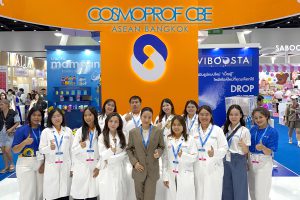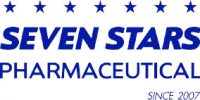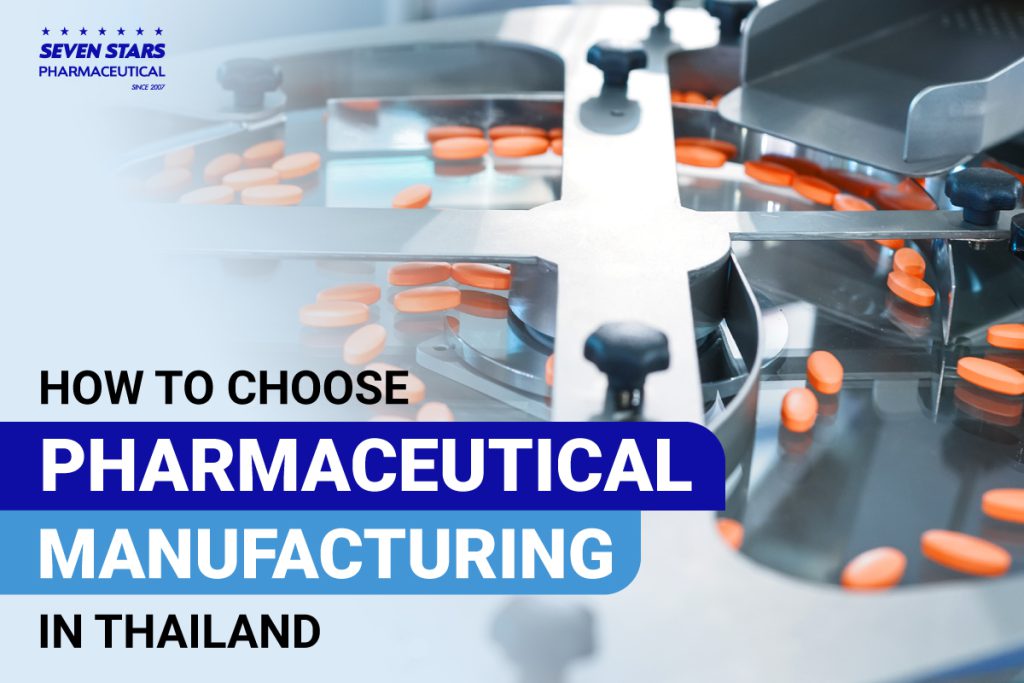Table of Contents
What is pharmaceutical manufacturing?
Pharmaceutical manufacturing is the industrial-scale synthesis of pharmaceutical drugs that are mostly done in terms of “continuous manufacturing,” in which input raw materials and energy are fed into the system at a constant rate while output products are extracted at a constant rate. In this case, chemical, or sometimes herbal substances are being fed into the process which continuously runs to convert them into pharmaceutical products.
In pharmaceutical manufacturing, three major processes are used: power blending, in which a variety of excipients are blended together with the active pharmaceutical ingredient to create the final blend used to manufacture the solid dosage form, milling, in which small particles are bound together to form larger particles, and granulation, in which small particles are bound together to form larger particles.
These manufactured drugs are then subjected to stringent quality control and assurance measures to ensure consistency, safety, and efficacy of the final product, which is then packaged into its final dosage form (such as tablets, vials, or syringes) and labeled with critical information such as dosage instructions, warnings, and expiration dates, ready for distribution to end users.
Pharmaceutical manufacturing in Thailand
Thailand’s pharmaceutical manufacturing industry is made up of 148 GMP-certified manufacturers divided into three categories: government-owned facilities such as the Government Pharmaceutical Organization (GPO) under the control of the Ministry of Public Health and the Defense Pharmaceutical Factory under the control of the Ministry of Defense, foreign-owned facilities such as Pfizer, Novartis, Roche, and Sanofi-Aventis which mostly manufacture their own patented drugs, and locally-owned facilities that produce generic drugs for their own brand or serve as OEM manufacturers for a variety of domestic and international pharmaceutical brands.
The majority of the manufacturing capacity is used for the production of generic drugs, with 80% of the output consumed by local hospitals and other professional healthcare establishments, while the remainder is used for the production of over-the-counter medicines and medicine for export to neighboring countries such as Myanmar, Laos, and Cambodia.
Meanwhile, due to Thailand’s role as a “medical hub,” changing population distribution into an “aging society,” and growing concerns among the population about the state of their health, the demand for drugs, particularly generic and over-the-counter drugs, has outpaced manufacturing capacity in recent years. Because of these conditions, Thailand became a potential market for pharmaceutical sectors, including local drug manufacturing to support both domestic and external growing demands.
Is using OEM manufacturers or establishing their own factories better?
It is reasonable to manufacture your pharmaceutical products in Thailand in order to penetrate the domestic Thai drug market. Meanwhile, there is a choice for you to make between investing in new manufacturing facilities or selecting currently locally available OEM manufacturers. Thus, using OEM manufacturers or establishing your own pharmaceutical manufacturing facility is a difficult decision that depends on a variety of factors. Nevertheless, we have made a comparison between choosing OEM manufacturers and establishing new pharmaceutical factories.
Using OEM Manufacturers:
Advantages:
- Cost-Effectiveness: Partnering with OEM manufacturers can be cost-effective, as it eliminates the need for large capital investments in infrastructure, facilities, and equipment.
- Speed to Market: OEM manufacturers often have established manufacturing capabilities, allowing you to quickly bring your pharmaceutical products to market without lengthy preparation.
- Expertise and Experience: OEM manufacturers are experienced in large-scale pharmaceutical manufacturing and quality control, reducing the need for in-house technicians and expertise in these areas.
- Flexibility: OEM arrangements offer flexibility in scaling production up or down based on demand fluctuations.
Disadvantages:
- Limited Control: You have limited control over the manufacturing process, quality assurance, and potential changes in the manufacturing process that the OEM manufacturer might make.
- Intellectual Property Concerns: Sharing proprietary formulations and manufacturing processes with an OEM manufacturer could pose intellectual property risks.
- Dependency: You become dependent on the capabilities and reliability of the OEM manufacturer. Any disruptions or issues on their side could strongly impact your products.
- Long-Term Cost: While outsourcing production might be cost-effective in the short term, long-term costs can add up depending on the intention of OEM manufacturers.
Establishing Your Own Manufacturing Facility:
Advantages:
- Full Authority: Owning your own manufacturing facility provides complete control over the production process, quality control, and intellectual property.
- Customization: You can tailor your manufacturing processes and equipment to meet your specific product needs and quality standards.
- Intellectual Property Protection: Owning your facility reduces the risk of exposing proprietary information and intellectual property to third parties.
- Long-Term Cost Efficiency: While the initial investment might be higher, owning your facility can be more cost-effective in the long run as you avoid ongoing OEM fees.
Disadvantages:
- High Initial Investment: Establishing a manufacturing facility requires significant capital investment in infrastructure, facilities, equipment, and skilled personnel.
- Complexity and Regulatory Compliance: Operating your own facility involves navigating complex regulatory requirements, obtaining licenses, and ensuring compliance with GMP and other industry standards required by local regulators.
- Time and Resources: Setting up a manufacturing facility, and somehow a complete supply chain for your products, can be time-consuming and resource-intensive, potentially delaying your entry into the market.
- Risks and Uncertainties: The success of your manufacturing operation relies on your ability to manage risks, maintain consistent quality, and adapt to changes including market demand, regulations, or somehow unprepared events.
What to concern when choosing pharmaceutical manufacturing in Thailand?
If you are considering manufacturing your products locally in Thailand, these are factors to consider before choosing pharmaceutical manufacturers here:
- Regulatory Compliance: Understand the pharmaceutical regulations, compliance requirements, and guidelines for manufacturing, quality control, and product registration in Thailand, which is currently under the control of the Thai Food and Drug Administration (Thai FDA).
Currently, the Thai FDA requires that every manufacturer of pharmaceutical products need to comply with the European Union Good Manufacturing Practice – Pharmaceutical Inspection Co-operation Scheme or GMP PIC/S since 2011.
- Quality Control and Assurance: Make sure that the manufacturer has provided robust quality control and assurance processes to ensure the safety, efficacy, and quality of your pharmaceutical products.
- Supply Chain Management: Make sure that the manufacturer has built a reliable supply chain for sourcing raw materials, active pharmaceutical ingredients (APIs), packaging materials, and other necessary components for manufacturing your pharmaceutical products.
- Skilled Workforce: Make sure that the manufacturer has employed a skilled workforce with expertise in pharmaceutical manufacturing, quality control, research and development, regulatory affairs, and other relevant areas.
- Intellectual Property Protection: Make sure that the manufacturer has a measure to safeguard your intellectual property by understanding local patent, trademark, and copyright laws. We recommend working with legal experts to take care of your legal issues in Thailand.
- Environmental Considerations: Make sure that the manufacturer has implemented environmentally friendly practices and waste management systems to minimize the environmental impact of the manufacturing operations.
- Technology and Innovation: It is beneficial if the manufacturer embraces technological advancements in pharmaceutical manufacturing, such as automation, data analytics, and digitalization, to enhance efficiency, productivity, and product quality.
- Distribution and Logistics: It is beneficial if the manufacturer also develops a solid distribution and logistics network to efficiently deliver your pharmaceutical products to local and international markets.
Seven Stars Pharmaceutical, your trustable pharmaceutical manufacturer in Thailand
If your options are choosing to manufacture your products through OEM manufacturers, Seven Stars Pharmaceuticals is considered your best choice available as we are one of the leading pharmaceutical OEM manufacturers in Thailand that are currently certified under GMP PIC/S, SGS International, and ILAC-MRA, Seven Stars Pharmaceutical can providing highly cost-effective manufacturing capacity for products with constant quality and safety, chosen by many pharmaceutical companies of both domestic and international.
Seven Stars Pharmaceutical currently offers a manufacturing solution as both contract manufacturing using your own formulas of your original drugs, or our available Thai FDA-certified formula of generic drugs, and as Original Design Manufacturing (ODM) with one-stop services from concept consultants, product development, product registration for approval and certification from local regulators, manufacturing, and distribution of final products in forms of conventional and sugar-coated tablets, effervescent tablets, soft and hard gelatin capsules, solutions and suspension liquid drugs, jelly strips, powder sachets and bottles, metered dose inhalers, ointment, external-use cream, and gel.
Also, Seven Stars Pharmaceutical is not only capable of manufacturing various types of pharmaceuticals, but we are also able to manufacture veterinary drugs, vitamins and supplementary, cosmetics, and consumer products that include active pharmaceutical ingredients such as soap, toothpaste, and mouthwash. Not only the manufacturing, we are ready to provide you with distribution and logistics solutions to help you penetrate local Thai markets.
If you are currently searching for manufacturers of pharmaceutical or health products in Thailand, we recommend you contact our sales at Seven Stars Pharmaceutical through contact@sevenstars.co.th or phone number +662 420 3887 and 88.

Seven Stars Pharmaceutical ฉลองครบรอบ 18 ปี
Seven Stars Pharmaceutical ฉลองครบรอบ 18 ปี ดร.ภก.คมสัณห์ ฐานะโชติพันธุ์ ได้กล่าวเปิดงานกิจกรรมหนึ่งปีที่ผ่านมา อีกทั้งองค์กรยังคงยึดหลักมุ่งมั่นพัฒนาและพร้อมที่ก้าวไปด้วยกันเพื่อสร้างความยั่งยืนในอนาคตต่อไป

SSP Biotech ร่วมจัดแสดงสินค้าในงาน Cosmoprof CBE ASEAN 2025
งานแสดงสินค้าและแบรนด์ด้านความงามคุณภาพกว่า 500 บริษัท บนพื้นที่จัดแสดงงานกว่า 10,000 ตารางเมตร ทำให้งานครั้งแรกของ คอสโมพรอฟ ซีบีอี อาเซียน

พิธีทำบุญวันคล้ายวันเกิด คุณ ทวีชัย ปี 2567
เนื่องในวันคล้ายวันเกิด คุณ ทวีชัย ทางบริษัท Seven stars Pharmaceutical ทีมผู้บริหาร จัดพิธีทำบุญร่วมกับพนักงานบริษัททุกแผนก

ประชุมฝ่ายขายแบ่งปันความรู้ระหว่างแผนกผู้แทนขาย การตลาด ODMและR&D
วันที่ 28 สิงหาคม 2567 คณะผู้บริหารจัดประชุมยอดขายแผนกผู้แทนและแลกเปลี่ยนความระหว่างตัวแทนแต่ละแผนกเพื่อการทำงานในอนาคต

